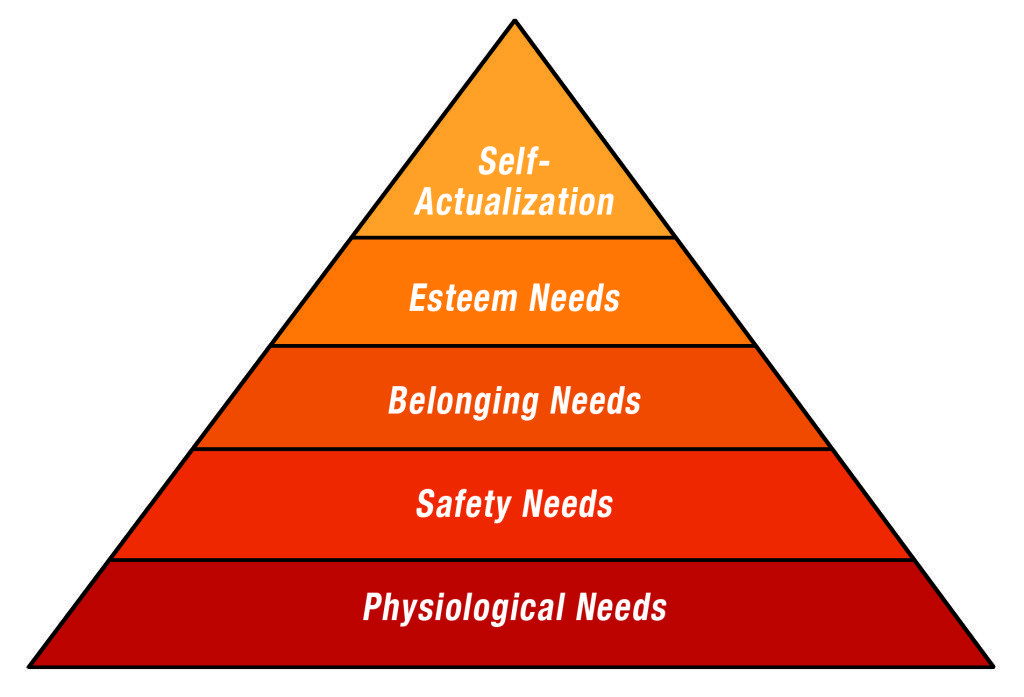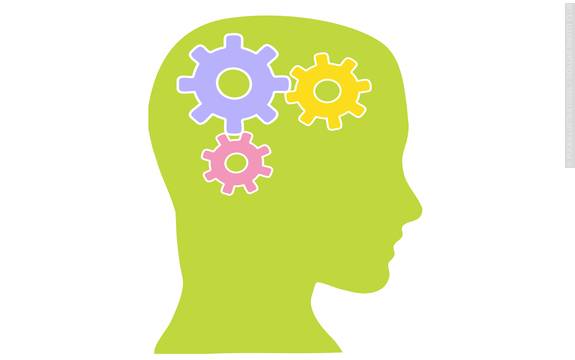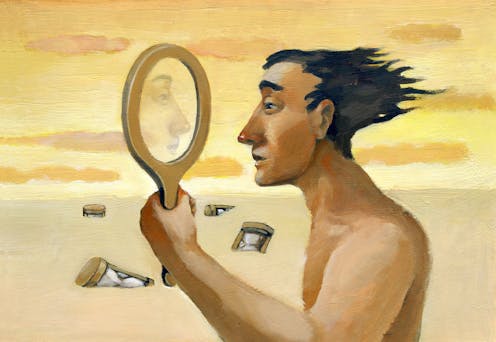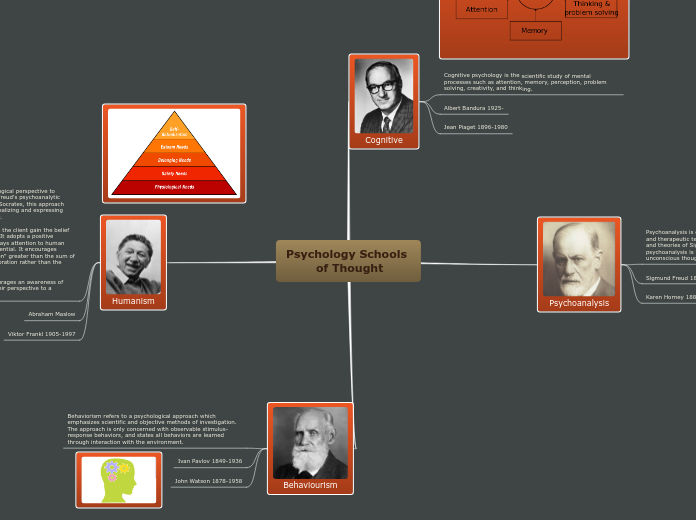Psychology Schools
of Thought

Cognitive
Cognitive psychology is the scientific study of mental processes such as attention, memory, perception, problem solving, creativity, and thinking.
Albert Bandura 1925-
Jean Piaget 1896-1980

Psychoanalysis
Psychoanalysis is defined as a set of psychological theories and therapeutic techniques that have their origin in the work and theories of Sigmund Freud. The core idea at the center of psychoanalysis is the belief that all people possess unconscious thoughts, feelings, desires, and memories.
Sigmund Freud 1856-1939
Karen Horney 1885-1952

Humanism
Humanistic psychology is a psychological perspective to answer the limitations of Sigmund Freud's psychoanalytic theory. With its roots running from Socrates, this approach emphasizes individuals process of realizing and expressing one's own capabilities and creativity.
This psychological perspective helps the client gain the belief that all people are inherently good. It adopts a positive approach to human existence and pays attention to human creativity, free will, and positive potential. It encourages viewing ourselves as a "whole person" greater than the sum of our parts, and encourages self exploration rather than the study of behaviour in other people.
Primarily, this type of therapy encourages an awareness of self, that helps the client change their perspective to a healthier behaviour.
Abraham Maslow
Viktor Frankl 1905-1997
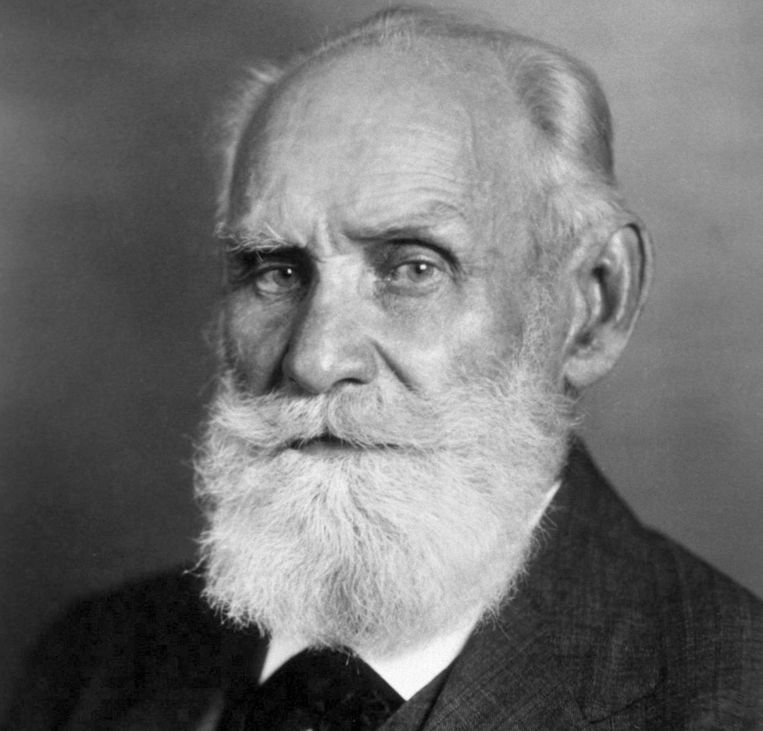
Behaviourism
Behaviorism refers to a psychological approach which emphasizes scientific and objective methods of investigation. The approach is only concerned with observable stimulus-response behaviors, and states all behaviors are learned through interaction with the environment.
Ivan Pavlov 1849-1936
John Watson 1878-1958
